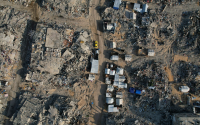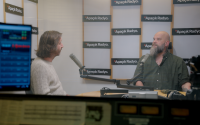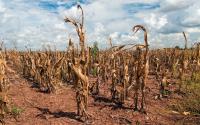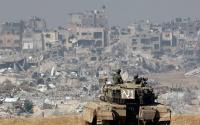20 July 2006
Jonathan Cook
A cactus bush in Nazareth, Israel’s largest Arab town, was riddled with holes from the shrapnel that sprayed out as a Katyusha rocket slammed into a street here today. Playing in front of the bush at the time were two children, aged three and nine, who were killed instantly.
This was not the first Hezbollah strike on one of the 100 or so Arab communities inside Israel – several have been hit in the past few days – but the two children, Rabia and Mohammed Abu Taluzi, were the first deaths among Israel’s 1.2 million Arab citizens. A second rocket strike on a car showroom in the centre of Nazareth reportedly injured one person.
Residents of the northern neighbourhood of Sufafra, where the two deaths occurred, were in shock. Safaa Sawalha, whose house overlooks the spot where the boys died, said they were only in the area because they were visiting their uncle.
She said all the windows in her house had imploded and the door of the bedroom, where she was resting, had been blown in by the force of the shockwaves. Two of her children were in hospital being treated for shock.
Shrapnel kills
Apart from a hole about the size of in a man in the road where the rocket landed, the damage was from shrapnel, which had blown out windows, pockmarked walls with holes and burst water pipes.
The roads leading to the deprived Sufafra neighbourhood are so steep and narrow that the emergency services were not able to reach the bodies for some time.
"We waited so long that in the end one of the women in the house came out and put blankets over the two little ones because we couldn’t stand to see them lying there any longer," Sawalha said. "Their father prayed over them before they were taken away."
She added angrily: "Maybe finally the Jews here will realise that we can be victims too. I don’t believe Hezbollah fired to hit us in Nazareth but that doesn’t make us any safer. Obviously their rockets are not that precise."
There was general reluctance to blame Hezbollah directly, although privately some admitted that this would damage whatever sympathy remains for the Shia militia among the Arab population inside Israel. Until now most have viewed Israel’s military actions as an unjustified war against the Lebanese people.
Military installations
Several residents pointed out that there are military installations near Nazareth that Hezbollah has been trying to target. Northern Israel is under martial law, which means that divulging details about the nature of the installations and their locations is forbidden.
Nonetheless, a 58-year-old man who wished to be identified only as Abu Firas said: "We are like human shields. They build these military sites close to Arab communities because they hope it will make Hezbollah more frightened to strike at them. Where are we in all this? Israel thinks we are Hezbollah, and Hezbollah thinks we are Israelis. No one cares about what happens to us."
Anger
Other residents voiced anger that the Israeli authorities had made no preparations for such an attack on Arab communities.
"We watch Israeli TV and can see that in Jewish towns like Haifa and Nahariya they have air raid sirens to warn them and public shelters in which they can hide," said Ziad Awaisi, a 31-year-old physiotherapist.
"What do we have? Nothing. There is no place for us to hide. Israel doesn’t think our deaths are important."
The mayor of Nazareth, Ramez Jeraisi, has been asking for the funds to build public shelters in the city for some time. There are a number of shelters in the neighbouring Jewish city of Upper Nazareth.
"I have discussed the issue with the Ministry of Interior and the Home Front, and they have said there is no money for them."






